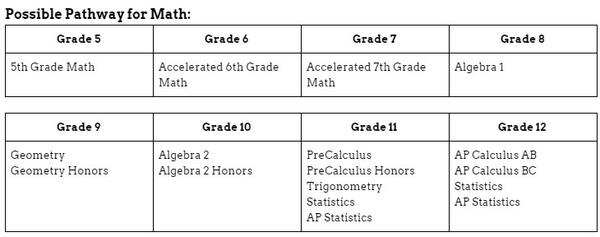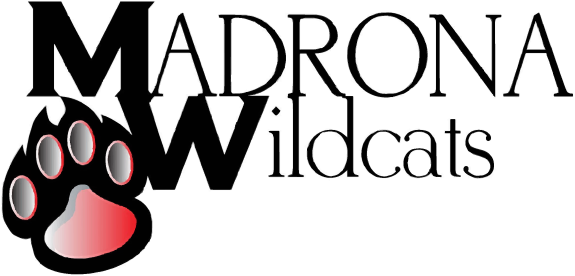Core Classes
All students will be enrolled in one of each of the 4 core classes
English Language Arts, Math, Science, Social Studies
ENGLISH LANGUAGE ARTS (ENG/LA)
English/Language Arts 6: The Common Core-based Language Arts curriculum will include instruction in four main areas: reading, writing, language, and listening and speaking. In reading, students will be working on close-reading strategies to improve comprehension, analyze the author's message, and respond to literature meaningfully. Students will read narrative texts, poetry, informational texts, and two novels. In writing, students will focus on three modes of writing- narrative, informational, and argumentative. Language instruction includes vocabulary development, grammar and mechanics, and figurative language. In speaking and listening, students will participate in classroom discussions, audio and video analysis, and presentations.
English/Language Arts 7: The 7th grade Common Core-based Language Arts will include instruction in four main areas: reading, writing, language, and listening and speaking. Students will read literature and informational texts. In writing, students will focus on composing narrative, explanatory, argumentative, and research pieces. Language instruction included further development of conventions: knowledge and use, and vocabulary acquisition and use. In speaking and listening, students will focus on comprehension, collaboration and presentation of ideas.
English/Language Arts 8: The 8th grade Language Arts program will emphasize reading, writing., grammar in a meaningful context which is related to the core literature. Students are engaged in reading a variety of genres. Writing across the curriculum is a goal of our program. Writing activities include a persuasive essay, short stories, biographies, reports and a research paper. An integral component of the language arts program is the development of critical thinking skills. Students actively engage in the writing process. Grammar usage, spelling, and the mechanics of language are emphasized in the final stage of the writing process.
MATH
6th-Grade Math: In Grade 6, instructional time will focus on four critical areas: (1) connecting ratio and rate to whole number multiplication and division and using concepts of ratio and rate to solve problems; (2) completing understanding of division of fractions and extending the notion of number to the system of rational numbers, which includes negative numbers; (3) writing, interpreting, and using expressions and equations; and (4) developing understanding of statistical thinking.

Accelerated 6th-Grade Math: In this accelerated course, sixth grade students will be taught all of the CC Math 6 standards and roughly half of the CC Math 7 standards. This course will place students on track to complete a high school level CC Algebra I in eighth grade. This course is open to all students who feel they are able to meet the challenge of this course. The fast pace movement of this course requires students to have a high level of mastery with math facts and computation to be successful.

7th-Grade Math: In Grade 7, instructional time will focus on four critical areas: (1) developing understanding of and applying proportional relationships; (2) developing understanding of operations with rational numbers and working with expressions and linear equations; (3) solving problems involving scale drawings and informal geometric constructions, and working with two- and three-dimensional shapes to solve problems involving area, surface area, and volume; and (4) drawing inferences about populations based on samples.
Accelerated 7th-Grade Math: (Prerequisite: Accelerated 6th Gr Math) In this accelerated course, seventh grade students will be taught the remainder of CC Math 7 standards and the CC Math 8 standards. This course will place students on track to complete a high school level CC Algebra I in eighth grade.
8th-Grade Math: In Grade 8, instructional time will focus on three critical areas: (1) formulating and reasoning about expressions and equations, including modeling an association in bivariate data with a linear equation, and solving linear equations and systems of linear equations; (2) grasping the concept of a function and using functions to describe quantitative relationships; (3) analyzing two- and three-dimensional space and figures using distance, angle, similarity, and congruence, and understanding and applying the Pythagorean Theorem.
Algebra I: (Prerequisite: CC Math 7/8) The fundamental purpose Algebra I is to formalize and extend the mathematics that students learned in their previous math courses. This course includes standards from the conceptual categories of Number and Quantity, Algebra, Functions, and Statistics and Probability. In this course, instructional time will focus on four critical areas: (1) deepen and extend understanding of linear and exponential relationships; (2) contrast linear and exponential relationships with each other and engage in methods for analyzing, solving, and using quadratic functions; (3) extend the laws of exponents to square and cube roots; and (4) apply linear models to data that exhibit a linear trend. Mastery of this course will allow students to move on to CC Geometry in high school.
SCIENCE
Science 6: Per the Next Generation Science Standards, students in Science 6 will study integrated science topics such as Earth's systems, weather and climate, energy, human impact, cells, body systems, organism growth, development, and reproduction, and engineering design. As students engage with these topics, they will gain a deeper understanding of the concepts and apply their understanding to real-world phenomena.
Science 7: Per the Next Generation Science Standards, students in Science 7 will study integrated science topics such as matter and energy in organisms and ecosystems, interdependent relationships in ecosystems, geoscience processes and Earth history, Earth systems and resources, human impact, structure and properties of matter, chemical reactions, and engineering design. Throughout the year, students will be guided by the theme of energy and how energy can create changes as they experience hands-on activities that encourage critical thinking and problem solving.
Science 8: Per the Next Generation Science Standards, students in Science 8 will study integrated science topics such as space systems, forces and interactions, energy, Earth history, waves and electromagnetic radiation, natural selection and adaptation, genetics, human impact, and engineering design. Emphasis will be placed on exploration, investigation, and authentic science experiences allowing students to strengthen their use of science and engineering practices.
SOCIAL STUDIES
Social Studies 6: This Ancient Civilizations course will provide an overview of prehistory and the rise of civilizations in Asia, Africa, and Europe. Students will learn about these early civilizations through studying their geography, religion, achievements, government and social structures. Through this course, students will have the opportunity to develop critical thinking, communication, and collaboration skills through the use of primary and secondary sources in order to establish their own perspective on historical events.
Social Studies 7: This World History course is a survey of Medieval and Early Modern Times. Students will study the political, economic, social, cultural, and technological changes that occurred in Europe, Africa, Asia, and the Americas in the years A.D. 100-1789. This course is designed to help students examine the growing interaction among civilizations as well as the exchange of ideas, beliefs, technologies, and commodities. Students will have the opportunity to develop critical thinking, communication, and collaboration skills through the use of primary and secondary sources in order to establish their own perspective on historical events and make modern day parallels.
Social Studies 8: By the end of this course, students will be equipped with an understanding of the ideas, issues, and events from the founding of the country up to the Reconstruction after the Civil War, with an emphasis on the structure and functions of the US government. The course is designed to provide students with the opportunity to develop critical thinking, communication, and collaboration skills, all of which are necessary to succeed in the 21st century world. Over the course of the class students will be asked to take on the role of historical detectives, going beyond the who, what, where, and when, to gain a deeper understanding of the why these events took place. Students will utilize primary and secondary sources in order to establish their own perspective on these historical events using evidence to support their views.
ENGLISH LANGUAGE DEVELOPMENT (ELD)
ELD 6-8: Designed for students learning English as a second language. ELD classes provide designated instruction in language acquisition to develop listening, speaking, reading and writing skills in English based on ELD standards and state ELD framework. Placement is based on ELPAC scores, ELD levels and ongoing progress monitoring and consultation The ELD Class is considered the Elective course for these students.
STUDY SKILLS
Study Skills 6-8: This program is designed to assist students learn, understand, and reinforce concepts and/or assignments presented in the general curriculum. Study Skills is a support class for students taking regular education classes. Emphasis is placed on core classes. Students have opportunities to develop and strengthen good study habits and learning strategies through various instructional methods and strategies. Specific goals and objectives identified in the student’s IEP will be integrated. The study skills teacher will collaborate with regular education teachers on an on-going basis to develop study strategies and design lessons to best meet academic requirements of the regular classroom.

